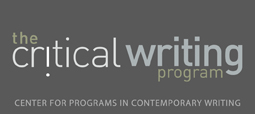French Studies
An Overview of the Discipline
French and Francophone Studies is a humanities discipline that focuses on gaining understanding about the French language and French culture. French studies draws upon many disciplines, including French language, History, Art History, Comparative Literature, Linguistics, Gender Studies, and Cinema Studies. Experts within the French Studies discipline seek to find answers to questions about French culture and history, as well as pose new questions about these domains.
Reasoning and Evidence
The Nuts and Bolts
French Studies scholars use both explanatory and justificatory reasoning, but emphasis on persuasion (justificatory) is more common. Perhaps the ratio could be described as 60% persuasion and 40% explanation. The evidence is largely text-based, particularly in French literary studies courses. The specific guidelines for evidence does vary from subdiscipline to subdiscipline. In literary-themed French courses, the emphasis is on using definitive scholarly texts, as produced by La Pleiade, as well as scholarly journals as secondary criticism.
Authorship
While French Studies scholars rely on the work of other scholars, the field is largely individualistic. Most scholarly articles and books are produced by a single author, rather than two or more co-authors.
Goal
Generally speaking, the goal of French Studies is to affirm or critique a position within French literary studies. However, at times the goal is to establish historical facts about literary movements, themes, or authors. A subdivision of French literary studies is based on finding solutions to problems as well, such as determining what would happen if one changed the point of view that governs a text.
The Writing Process
A Guide to Writing French Studies Papers
Student Writing Assignments:
Students are often asked to perform a close-reading of a text, and then record their findings in an analysis. In addition, many professors assign research papers. These two assignments are at times combined in a way that compels the student to do both a close reading and research.
Top Criteria in Student's Papers:
In student writing, many professors consider organization, reasoning and evidence, mastery of French grammar and mechanics, and following the assignment instructions most important. Also important are style, as well as combining original ideas with a mastery of the ideas of others. These features are stressed over following the discipline’s citation practices, style, and proper formatting, unless these factors become an issue for comprehension.
Common Errors
Many errors within French studies come from quality control, which refers to simple issues in French grammar, such as checking agreement between noun and adjective, subject and verb. In addition, while it may not be considered an error, one of the greatest distinctions between undergraduate and graduate level work is the ability to integrate the theses of different scholarly articles into the paper. Professors may not expect a huge bibliography at the undergraduate level, but it is expected that students are capable of integrating their research into their papers.
Additional Resources
Helpful Books and Articles
Collins Robert French College DictionaryLe Bon Usage
© 2013 The University of Pennsylvania
Meet the Professors

Andrea Goulet
Andrea Goulet specializes in nineteenth- and twentieth-century French fiction, critical theory, science and literature, detective literature, and nouveau roman.

Gerald Prince
Gerald Prince does scholarly work and teaches courses on modern French fiction and narrative poetics.
